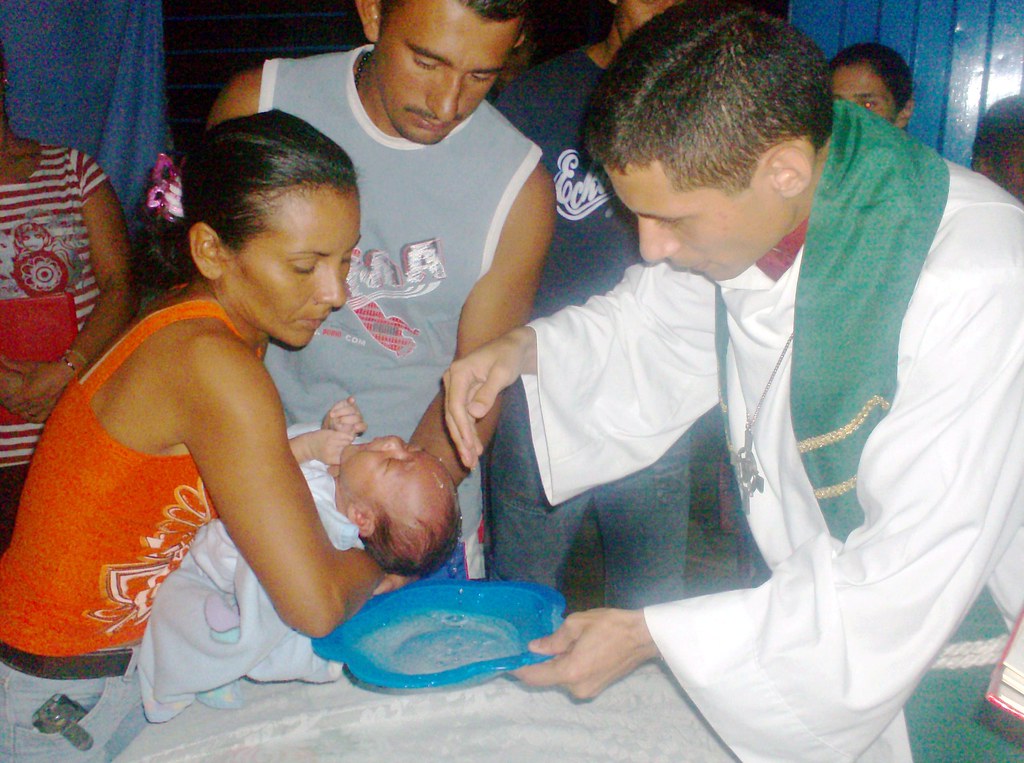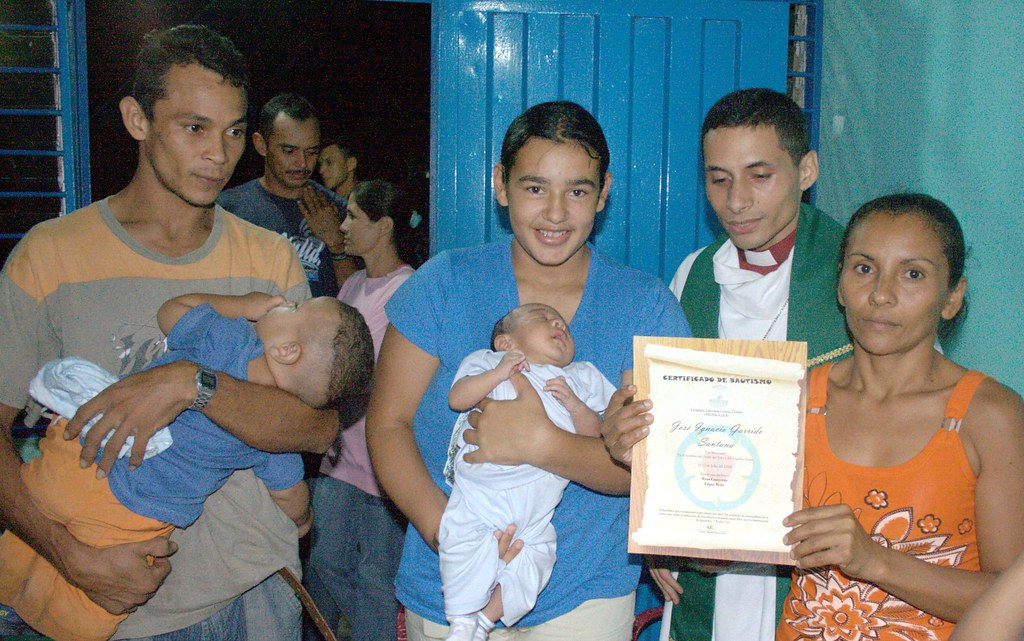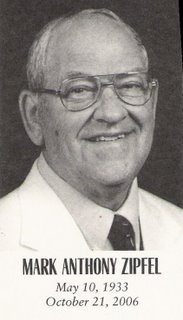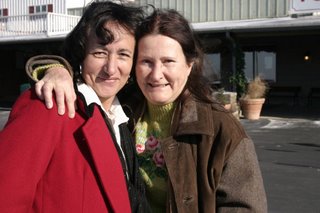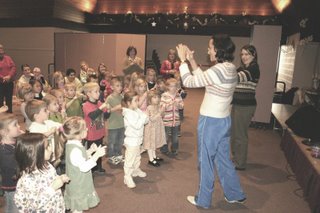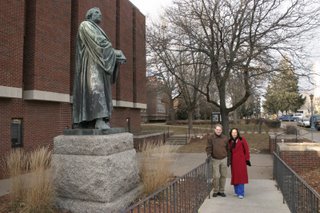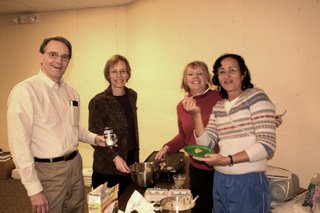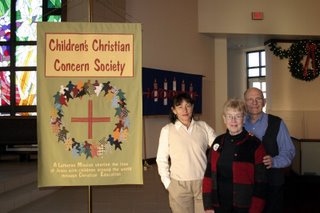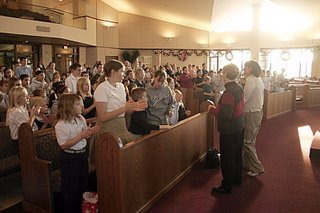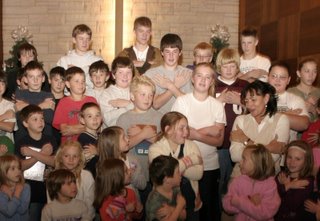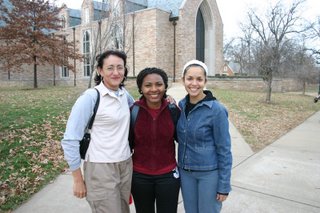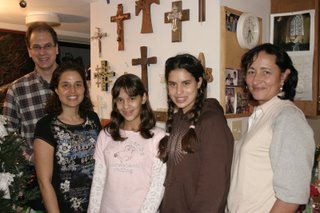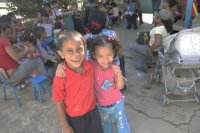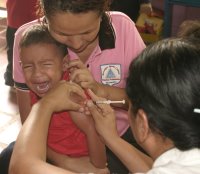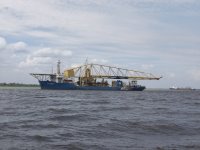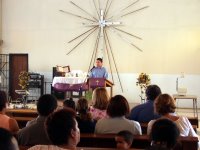
"Is it by your understanding that the hawk soars and spreads his wings toward the south?
Is it at your command that the eagle mounts up and makes his nest on high?
On the rock he dwells and makes his home, on the rocky crag and stronghold." Job 39:26-28
Luz Maria and I took some time off one Saturday and went on a road trip to the mountains with vicar Alonso Franco; Luz Maria's daughter, Charli; and Luz Maria's brother, Robert Henriquez. Let me give you something of a travelogue.
We live on the western edge of Venezuela's broad central plains region, which is known as "los Llanos". This region is characterized by large, Texas-style cattle ranches and is the center of Venezuela's cowboy tradition. It has its distinctive musical style, called "la musica llanera", although radio stations which play la musica llanera also sometimes play North American country music. For example, as Robert drove us up into the mountains, at one point we listened to T. Graham Brown's
"Come Hell or High Water" and also to Bonnie Tyler's 1980s hit,
"It's a Heartache" (this one is actually quite popular in Venezuela, you hear it on the radio rather often).
The three neighboring states of Barinas, Portuguesa and Cojedes form a subregion known as "los Llanos Altos" or "the High Plains" due to the altitude. I find this ironic because I used to live in Dodge City, Kansas, and traveled the
High Plains of the United States. From where we live you can see the outline of the Andes Mountains on the horizon, in much the same way that you see the outline of the Rocky Mountains from the plains of eastern Colorado.

Directly west of us lie the three most mountainous states of Venezuela: Tachira, Merida and Trujillo. The five highest peaks in Venezuela are found in this Andean region. In fact, there is a name for them
the Five White Eagles. That is because of this ancient American Indian story:
When the world was new, five gigantic white eagles flew down from the heavens. As they flew over the earth, the shadow of just one of them would obscure the sun. The
five giant white eagles made their nests and would perch on the five highest peaks of the Andes.
One day, Caribay, a beautiful chief's daughter, decided she wanted to adorn herself with feathers from one of the five white eagles. She pursued them up to the heights of the mountains, but when she was able to creep close to them on their perches, she found that the gods had transformed
the birds into figures of solid ice.
Caribay gave a great cry which momentarily roused the eagles from their slumber. They shook their wings and snow fell on the Andes. Caribay was tranformed into a wind spirit and her voice still may be heard in the howling of storms high in the mountains.
This myth was first translated and put in written form by Tulio Febres Cordero, a noted regional author. His son, Gerardo Febres Cordero, become the founding pastor of Corpus Christi Lutheran Church in Barinas, but is no longer associated with the Lutheran Church of Venezuela.
Today, the Five White Eagles are known as Pico Bolivar (height, 16,427 feet above sealevel); Pico Humboldt (16,214 feet); Pico la Concha (16,148 feet); Pico el Toro (15,600 feet); and Pico el León
(15,551 feet). These are the only mountains in Venezuela that are permanently capped with snow and ice.
But we did not visit any of the Five White Eagles. Rather our destination was Pico el Aguila (Eagle Peak), at 13,510 feet above sealevel, the highest mountain in Venezuela accessible by
highway.
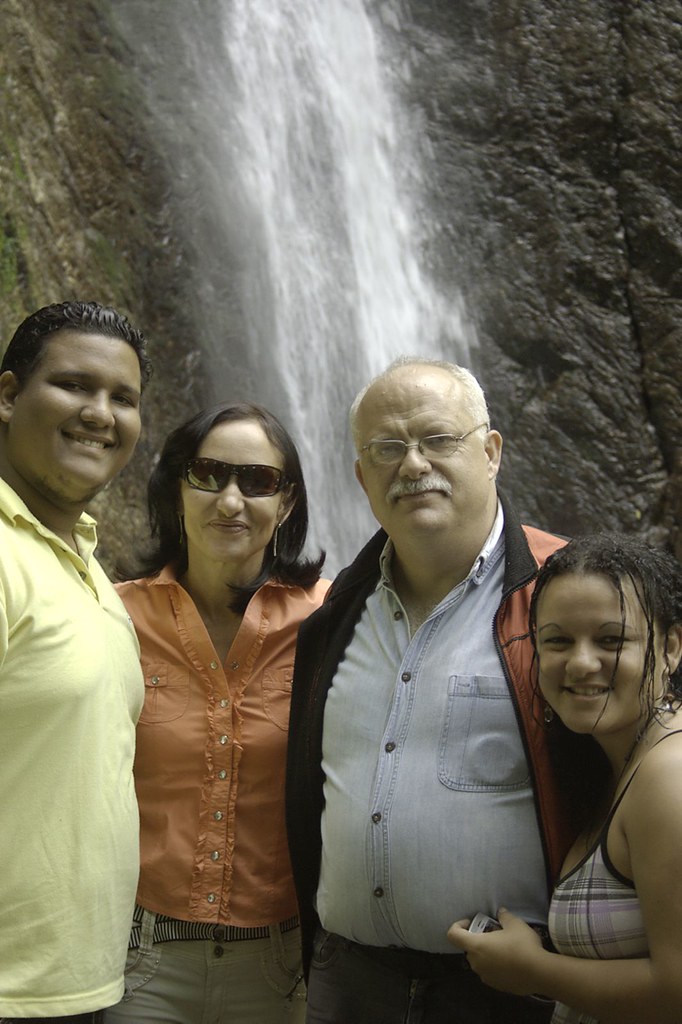
Along the way we stopped at la Cascada el Velo de la Novia (Bridal Veil Falls), a waterfall which begins many feet above the highway, but we had to hike down from the highway to reach the mail pool formed by the falling water.
Another stop was la Laguna de Mucubaji, also known as la Laguna Negra, or "the Black Lagoon". This is nothing like the fictional setting of the classic 1954 horror movie,
"Creature from the Black Lagoon". That lagoon was located within the steamy Amazonian rainforest, but this Black Lagoon is found among the the cold mists of the mountains. There is no amphibious fish-monster lurking in its depths, but you would not want to go swimming anyway, because it is so chilly.
We ate lunch at a restaurant near the Black Lagoon. On the menu was trout with mushrooms. There are many trout farms in the Venezuelan Andes. This restaurant and others in the region, with their wood paneling and record-setting fish mounted on the walls, almost make me think I am back in Wisconsin or Minnesota.
After lunch we continued on up to Pico el Aguila. We encountered bicyclists on the highway, which was not too surprising, but more noteworthy was the guy skateboarding down the narrow mountain highway with its steep cliffs and hairpin curves. Talk about extreme, dude! He looked like he stepped out of a Mountain Dew commercial (except that he was wearing a helmet, knee and elbow guards).
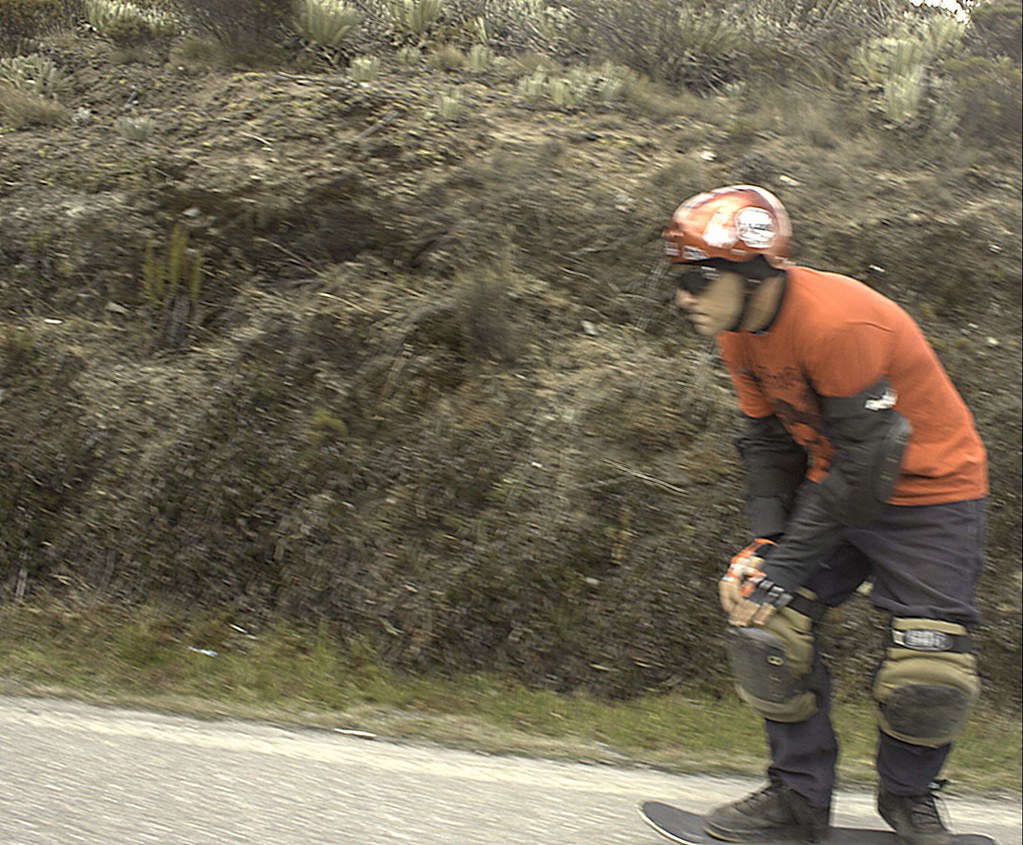
Our view from the top of Pico el Aguila was obscured by a thick cloud that had enshrouded the mountain. There was no snow, but it was one of the few time I have been able to see my breath in Venezuela. Near the top of Eagle Peak is a monument recognizing another winged creature, the
rare
Andean condor. One of the world's largest birds, the endangered condor sometimes can be sighted in the area.
Also, many of the souvenirs in the inevitable souvenir shop had a frog theme because the Andean region is home to many rare species of frogs (how that is consistent with the cool climate, I don t know, but that is what I was told). Actually, Venezuela in general is home to hundreds, perhaps
thousands of plant and animal species either found only here or in very few other locations in the world.
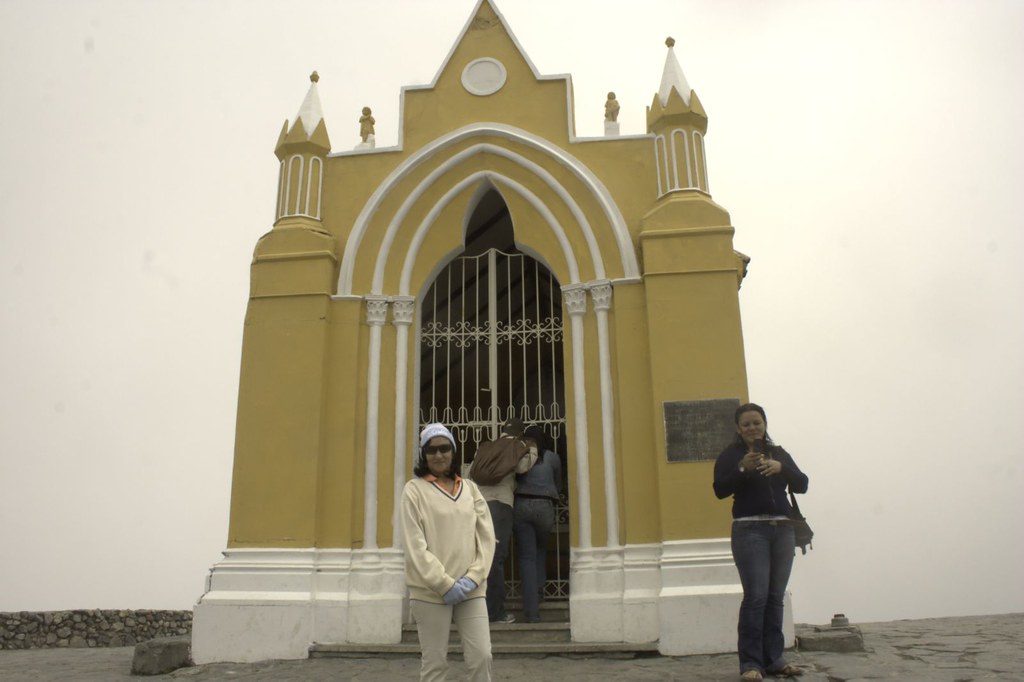
At the very top of Pico el Aguila stands a chapel devoted to
the Virgin of Coromoto, an apparition of Mary believed to be the "patroness" of all Venezuela. There are other "manifestations" of Mary, such as
the Virgin of the Valley, who is supposed to be the patroness of eastern Venezuela. but the Virgin of Coromoto is
number one.
However, I could not help but notice, when we looked in the chapel, that the statue of
Dr. Jose Gregorio Hernandez was larger than the image of the Virgin. Dr. Hernandez, who lived from 1864 to 1919, was a brilliant yet kindly
physician who took his practice into the poorest slums of Caracas. He died after being struck by a car while on his way to deliver medicine to patient's home.
Dr. Hernandez has not officially been declared a saint by the Roman Catholic Church, although the process has been initiated for him. Nevertheless, that does not stop people all over Venezuela from praying to him for health and healing. You may see his image in chapels, businesses and homes. It is always the statue of a mustachioed man wearing a black Homburg hat, sometimes with a black frock coat or otherwise with a physician's white lab coat.
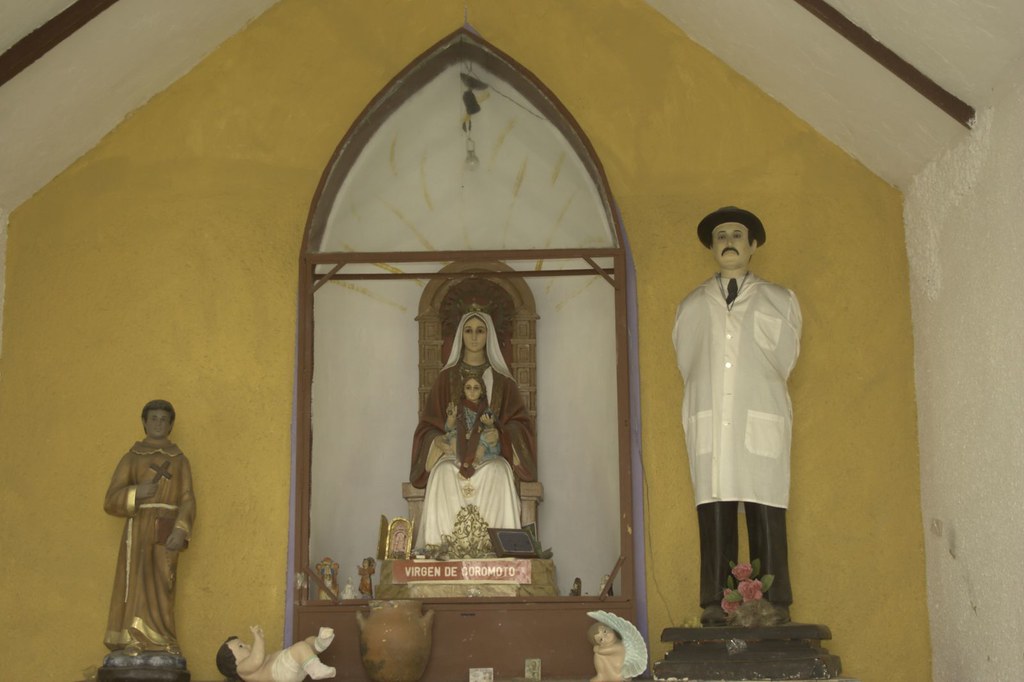
This is typical of the "folk Catholicism" you find practiced in Venezuela. Usually it does not have the official stamp of approval from the Roman church, but is not discouraged by the Roman clergy, either.
Also typical was the celebration of St. Joseph's Day, March 19, in La Caramuca. There were parades, fireworks and much more to-do than for, say, Christmas or Easter. This is because St. Joseph is the specific patron of La Caramuca.
But the St. Joseph's Day festivities in La Caramuca pale in comparison to the annual Procession of la Divina Pastora in Barquisimeto.
La Divina Pastora is yet another manifestation of Mary, considered to be the patron of the state of Lara.
A couple of years ago, another of Luz Maria's brothers, Moises Henriquez, appeared on "Todo por Venezuela", a game show similar to "Jeopardy" which is broadcast on national television in Venezuela. The questions all have to do with the history, geography and culture of Venezuela.
Moises was asked a question about the Procession of la Divina Pastora, and the hostess added the comment, "I bet you are praying to la Divina Pastora right now". Moises replied, "No, I pray only to the Triune God". Luz Maria was very proud of her brother at that moment. Ultimately, Moises won the equivalent of 500 U.S. dollars.
Spanish sermons on-lineThe Spanish-language Web site for our mission may be found at
caramuca.ilv-venezuela.net. I have added a new feature to it: an archive of sermons that I have preached in Spanish. I have uploaded the text of 19 sermons so far, and have begun uploading audio recordings in mp3 format.
Uploading of audio files is a rather difficult process, since we still must rely on a 56k dialup modem for Internet access. It takes about two hours to upload a 20-minute sermon. Not only does this keep our phone line tied up for two hours, there is the added complication that we are
subject to power outages without warning. The power goes down at least once a week, and if it happens while I am uploading audio, I have to start over once the electricity returns.
We hope eventually to have broadband access, because one of our goals is to make La Caramuca Lutheran Mission a center for distance learning. But some challenges remain. First,
there is the cost of additional equipment and broadband service. Then there is the fact that we simply cannot obtain a DSL line at our location.
There is a cellular telephone provider,
Movistar, which is offering wireless broadband Internet access through EVDO technology. Supposedly there is wireless Internet access wherever there is Movistar cellular coverage. The problem here is, Movistar coverage at our location is spotty. The EVDO modem could be connected to the large television antenna on top of our house, which I believe could be the solution. But we have to devise some kind of test before we actually purchase the equipment (which we cannot do, anyway,
because we are short of funds right now).
Our Spanish site is powered by WordPress software. I have tried several types of blogging software for content management purposes. In my judgment, WordPress rules (and it's open-source).
For the sermon archive, I am using a WordPress plugin,
Sermon Browser, originally developed by Mark Barnes for
Bethel Evangelical Church of Swansea, England, and now used by more than 200 churches and missions worldwide. The plugin overall works very and, very important for us, may be set to reference the Spanish Reina-Valera Bible. There are some parts of the plugin that I will have to change to Spanish manually, however.
Working with youthFor Holy Week, we plan to take five older children (8 years and up) and also some from Corpus Christi to El Paraiso Lutheran Church in Barquisimeto for special activities designed
to teach the significance of Holy Week.
In addition to her other work, Luz Maria has begun literacy classes in the evening for older children who still do not know how to read and write.






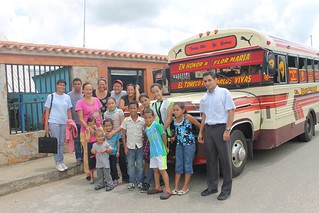
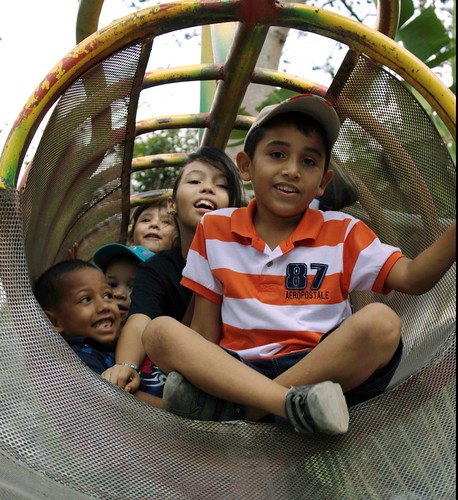


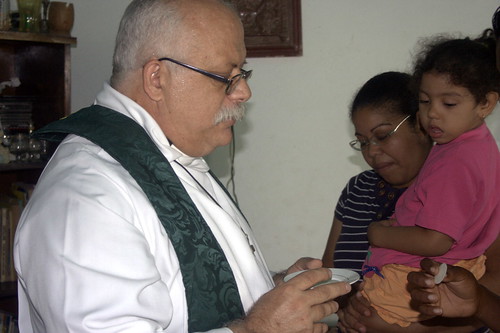
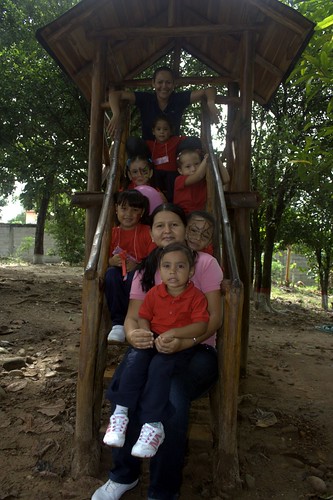
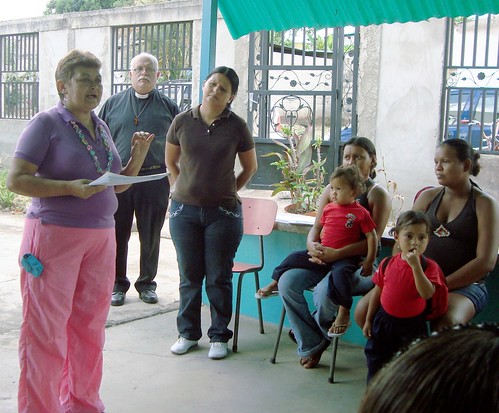
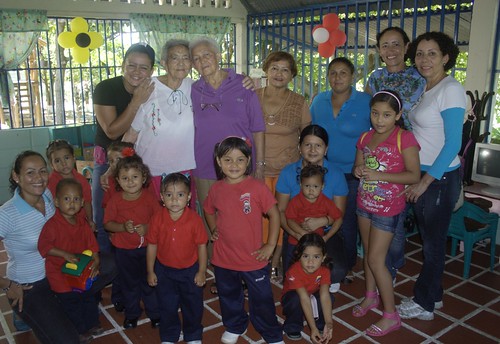
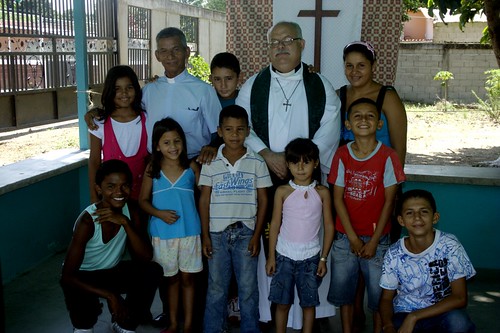

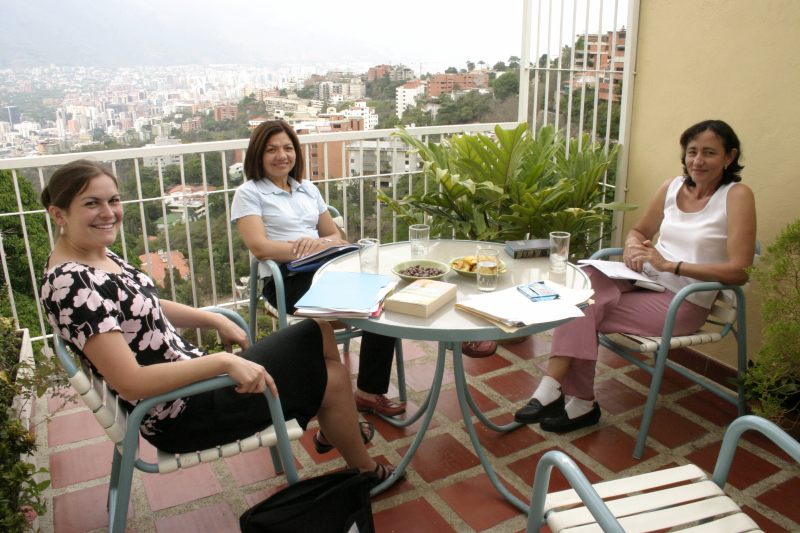



![Reblog this post [with Zemanta]](http://img.zemanta.com/reblog_e.png?x-id=88e81458-a090-8639-96df-5844298902d4)







